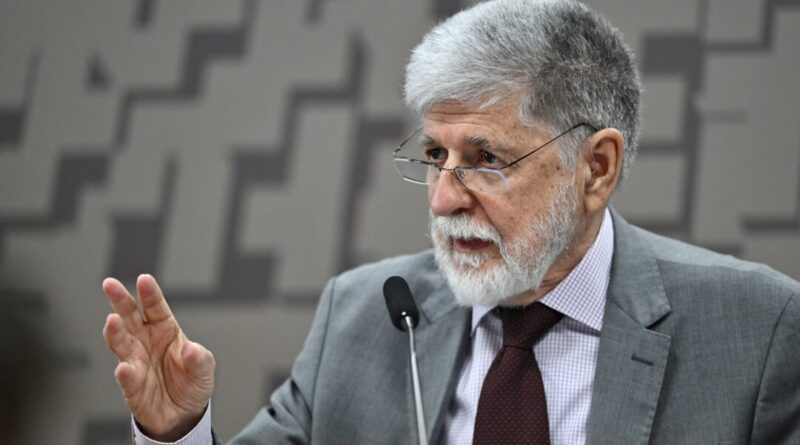Brazil’s Presidential Adviser Announces Country’s Decision to Opt Out of China’s Belt and Road Initiative
Brazil is seeking closer ties with Beijing but will not be signing on to China’s Belt and Road Initiative (BRI), as indicated by a top-ranking Brazilian official on Monday.
Celso Amorim, chief adviser to Brazilian President Luiz Inácio Lula da Silva, emphasized the importance of synergy, stating, “The key word is synergy. It’s not about signing on, like an insurance policy.”
Amorim’s comments were made in an interview with Brazil’s leading daily newspaper O Globo, which was published on Monday.
These remarks come amid expectations for Brazil to join the BRI after years of discussion, ahead of Chinese leader Xi Jinping’s visit to Brazil for the G20 summit in Rio de Janeiro in November.
Brazil is currently one of only three South American countries not participating in the BRI. Earlier this summer, Lula had mentioned putting together a proposal to join the initiative.
Amorim recently visited Beijing along with Lula’s chief of staff Rui Costa to discuss the initiative.
However, in the interview on Monday, Amorim clarified that the two countries are in negotiations rather than entering into a formal treaty, indicating that it may not be in Brazil’s best interest to formally join the initiative.
He stated, “It is not a question of joining. What matters is that these are projects that Brazil has defined and that may or may not be accepted by Beijing.”
Amorim’s interview took place shortly after U.S. Trade Representative Katherine Tai urged Brazilian leadership to assess the risks associated with the CCP’s proposal during an event in Sao Paulo. China’s state media criticized Tai’s remarks as “disrespectful.”
Brazil and China currently maintain a strong trade relationship, particularly in the agricultural sector. Bilateral trade between the two countries amounted to nearly $182 billion in 2023, marking a 6.1 percent increase from the previous year.
BRI Setbacks
Sydney-based think tank Lowy Institute reported earlier this year that major BRI projects have faced delays, with spending falling short of Beijing’s pledges.
According to the report, a significant portion of Beijing’s unfulfilled financing consists of canceled and downsized projects due to factors such as political instability, corruption, and weak governance.
Experts note that the BRI often leads to smaller countries becoming indebted to the CCP, allowing China to extract financial, political, intelligence, or even military advantages from these BRI partners.
Trulio stated, “With deeper integration to [China] through the Belt and Road Initiative, that actually constrains those countries’ ability to behave in a way that advances human rights, because China has coercive pressure on them.”
He added, “The concern has to do with dual use, or even as we heard, triple use. So a commercial port could have, potentially, intelligence collection implications, or it could have, potentially in a conflict, military uses.”
Italian Prime Minister Giorgia Meloni expressed disappointment with the lack of expected economic benefits from the BRI, noting that other countries avoiding BRI agreements with China have been able to maintain trade relations without adverse effects.
The Epoch Times reached out to the Brazilian government for confirmation of Amorim’s statements but did not receive a response by the time of publication.





